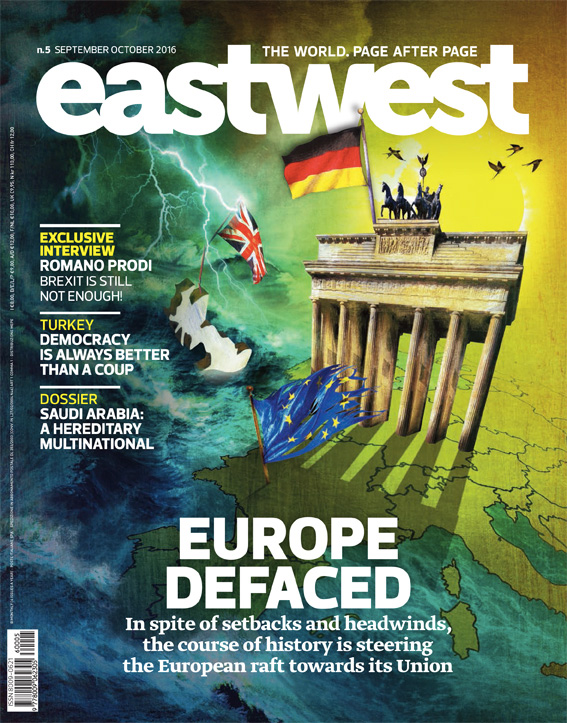
The ongoing crisis of Western democracies has been highlighted recently by the numerous attacks we are facing and still seem incapable of preventing: wars on our borders, new forms of terrorism, waves of uncontrollable migration, the striking failure of our integration models, and now even a revival of ’80s-style military coups.
We have asked the former Italian prime minister and convinced Europhile Enrico Letta to write a post-mortem on the mass suicide known as Brexit which we had predicted in the previous edition and the outcome of which went well beyond our most pessimistic expectations. We will be paying close attention to what may well be the slow but relentless decline of the glorious United Kingdom towards becoming a North Atlantic version of Singapore.
I will personally focus on the incredible event that is further undermining our very foundations. Up until July, no one could have imagined that a military coup, the kind that could plunge our democracies back into nightmares of the last century, might take place in Europe or in any of the countries aspiring to become a member of the European Union. But this belief has also been shattered by the images of tanks on the streets of Istanbul.
Among the many uncertainties, however, allow me to offer an interpretation that differs somewhat from the rants published in many European, and particularly Italian newspapers: firstly, the failure of the coup is unquestionably good news for democracy. Turkish President Recep Tayyip Erdogan’s reaction should be monitored and possibly kept in check, but it is unacceptable that in order to boost sales, half of the world’s media published a photo of the presumed decapitation of a coup soldier on a bridge over the Bosphorus, an image that turned out to be a hoax. This was not a mistake, but rather a clear instance of information manipulation. There was great concern about the destitution of 60,000 public employees, but hopes were raised by the thousands that subsequently got their jobs back, even among the military
involved in the coup. I would prefer to highlight the huge demonstration of national unity in Taksim Square in Istanbul, which saw Islamic and secular Turks under one banner: proof positive that the attempted coup was different from those of the past in which the Kemalist mould was clearly visible. Rather than focusing on the extensive powers being accumulated by Erdogan, we should view with moderate satisfaction the rediscovered feeling of national unity in a country in which the polarization of the political debate has been one of the main causes of the democratic crisis over the last two years.
A final note regarding the presidential elections in the US. Having returned from a trip to the conventions in the US, I can report that Republican Party candidate Donald Trump is not a freak show and when he harps on about protecting American employment from the free trade agreements, he puts his finger on a weakness that is worrying large sectors of the country’s underemployed middle class. Then again, the much advertised hyper-competence assigned to the Democratic candidate, Hillary Clinton, neither sways nor thrills her own supposed supporters. Thus the outcome of
the Donald-Hillary contest is by no means a given and those who are currently describing the match-up as a rehash of the Italian contest between Silvio Berlusconi and the unbeatable ‘Communist party war machine’ led by Achille Occhetto in 1994, may not be so wide of the mark. The Italians are probably the only ones who are likely to remember how it panned out.
The ongoing crisis of Western democracies has been highlighted recently by the numerous attacks we are facing and still seem incapable of preventing: wars on our borders, new forms of terrorism, waves of uncontrollable migration, the striking failure of our integration models, and now even a revival of ’80s-style military coups.






